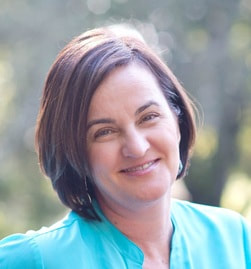
Last night I worried for a 20-year-old boy who was sleeping in the park. His mother called me just as I was about to climb into bed.
She was twisting in agony over what to do because her son greatly needed a sleeping bag.
She’d desperately hoped he would choose to return to rehab. He was asking to stay with her but she knew that even cooking him a meal would crumble her carefully-built resolve. Much as she wanted to cradle him in her arms and offer him a warm bed, she’d learned if she helped make him comfortable he would not go back to treatment. She also knew that her son was sick, consumed by the disease of addiction.
So she’d told him he couldn’t stay at her house.
She sounded strong and clear, quite different from a few years earlier when she was thin as a pin, sinking down under the double distress of an alcoholic husband and a son’s growing drug addiction.
I’d experienced a similar situation when my own son had broken the rules at one treatment facility and they’d asked him to leave. He was facing 3 nights on his own—in a little town in the Rocky Mountains in the dead of winter—before a sober house had an open bed. He wanted money for a motel but I’d said “No.” I told this boy’s mother nothing had ever felt so heartbreaking or so harsh yet I’d learned it didn’t help to cushion his downward slides.
Now a rehab in another town was offering her son a bed in 5 days’ time.
She hung on to this sliver of hope. She wanted to point him toward a shelter but there isn’t one in our community. There isn’t a detox center or a rehab either. And this one 15 miles away didn’t have any available beds when he greatly needed one.
She wanted to keep her son safe and warm. Many of us find ourselves in this same quandary: How do we stay out of the chaos, and convey steady love and encouragement when our communities are without good local treatment centers? Our sick sons and daughters need to walk into rehab on their own because we can’t do that for them. Addiction is a disease where protecting an addict doesn’t work but timely treatment does.
Five nights in the park appeared to be the only option. Still in turmoil, this mother decided to leave the sleeping bag on her doorstep where her son could get it.
She was twisting in agony over what to do because her son greatly needed a sleeping bag.
She’d desperately hoped he would choose to return to rehab. He was asking to stay with her but she knew that even cooking him a meal would crumble her carefully-built resolve. Much as she wanted to cradle him in her arms and offer him a warm bed, she’d learned if she helped make him comfortable he would not go back to treatment. She also knew that her son was sick, consumed by the disease of addiction.
So she’d told him he couldn’t stay at her house.
She sounded strong and clear, quite different from a few years earlier when she was thin as a pin, sinking down under the double distress of an alcoholic husband and a son’s growing drug addiction.
I’d experienced a similar situation when my own son had broken the rules at one treatment facility and they’d asked him to leave. He was facing 3 nights on his own—in a little town in the Rocky Mountains in the dead of winter—before a sober house had an open bed. He wanted money for a motel but I’d said “No.” I told this boy’s mother nothing had ever felt so heartbreaking or so harsh yet I’d learned it didn’t help to cushion his downward slides.
Now a rehab in another town was offering her son a bed in 5 days’ time.
She hung on to this sliver of hope. She wanted to point him toward a shelter but there isn’t one in our community. There isn’t a detox center or a rehab either. And this one 15 miles away didn’t have any available beds when he greatly needed one.
She wanted to keep her son safe and warm. Many of us find ourselves in this same quandary: How do we stay out of the chaos, and convey steady love and encouragement when our communities are without good local treatment centers? Our sick sons and daughters need to walk into rehab on their own because we can’t do that for them. Addiction is a disease where protecting an addict doesn’t work but timely treatment does.
Five nights in the park appeared to be the only option. Still in turmoil, this mother decided to leave the sleeping bag on her doorstep where her son could get it.

 RSS Feed
RSS Feed